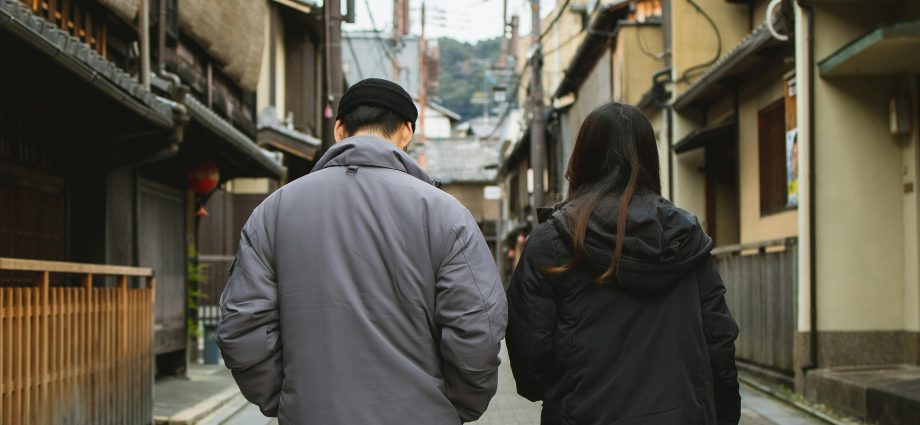PHOTO: With home prices skyrocketing around the world, one country is giving away millions of homes for free or next to nothing. Could Japan’s housing crisis be a golden opportunity for savvy overseas buyers? Ryutaro Tsukata
💥 The Shocking Reality: Millions of Abandoned Homes in a Developed Country
As the housing affordability crisis bites across New Zealand, Australia, and beyond — there’s one unlikely place where houses are not only going unsold, they’re being given away.
Welcome to Japan, where the rise of akiya — abandoned and unwanted homes — has become one of the most bizarre and underreported stories in global real estate.
According to official estimates, Japan now has over 8.5 million empty homes, with that number expected to rise. These homes, many still in good condition, are being offered at rock-bottom prices — some even for free — in a desperate bid by authorities to repopulate ageing rural towns and reduce urban housing stress.
What’s fueling the akiya crisis? A combination of population decline, ageing demographics, inheritance issues, and cultural taboos around living in older or “tainted” homes.
https://www.propertynoise.co.nz/priced-out-the-market-japans-unwanted-homes-going-cheap-or-free-watch/
📉 Where the World is Pricing You Out, Japan is Practically Paying You to Buy
In New Zealand and Australia, median home prices are climbing well beyond reach. In Japan, you could buy a fully detached home for less than the cost of a second-hand car.
Local governments are now publishing akiya banks — online registries where these homes are listed for sale or giveaway. Some municipalities even offer subsidies or renovation grants to foreign investors who agree to move in or repurpose these properties.
“You can buy a house in Japan for less than a takeaway coffee a day,” said one property blogger featured in the Vox documentary.
🌏 Could Foreign Buyers Solve Japan’s Empty House Crisis?
The million-dollar question: Should foreign investors jump in?
The answer is complicated. On the one hand, Japan has no legal restrictions on foreigners buying property. You don’t even need residency. On the other, most of these akiya are in remote or shrinking towns — a far cry from Tokyo’s glitzy suburbs.
💡 But for digital nomads, retirees, or investors thinking long-term, it’s a compelling offer:
-
🏡 Huge range of homes under NZD $50,000
-
💴 Low annual taxes
-
🛠️ Subsidies available for renovations
-
🌄 Unparalleled cultural and lifestyle experience
“These homes could be transformed into Airbnb stays, art studios, wellness retreats — the possibilities are endless if Japan opens the door wider to international buyers,” said one Tokyo-based real estate expert.
https://www.propertynoise.co.nz/japan-has-millions-of-empty-houses-want-to-buy-one-for-40000-nzd-watch/
⚠️ The Flip Side: Why Locals Don’t Want Them
Many of these homes are in disrepair, poorly connected, or steeped in cultural stigma. Some Japanese people believe inherited homes bring spiritual baggage, especially if someone died there.
Others fear the cost of upkeep outweighs the value. For the local youth, the allure of Tokyo or Osaka far outweighs a return to sleepy, rural prefectures.
This presents an opening for foreigners less concerned by local superstitions and more focused on long-term ROI or a low-cost escape from the West’s overcooked property markets.
📊 Global Interest is Growing Fast
International YouTubers, real estate influencers, and travel bloggers are flocking to the akiya trend. Some have even launched entire businesses sourcing, renovating, and reselling abandoned homes.
Search interest in “buying a house in Japan” has skyrocketed globally in the last 18 months. And savvy buyers are starting to snap up bargains while the door is still open.
💬 Final Word: Ghost Houses or Gold Mines?
In a world where property is increasingly out of reach for the average person, Japan’s akiya problem might just be the world’s next big real estate hack.
But like any gold rush, success will favour those who:
-
Do their due diligence
-
Understand local laws
-
Accept the challenges of rural living
-
Think long-term, not short-term flips
This isn’t just about real estate. It’s about reshaping the narrative — from empty streets and shrinking villages to global reinvestment and revitalised communities.
So ask yourself:
Could your next property be sitting empty in Japan… waiting for you?











